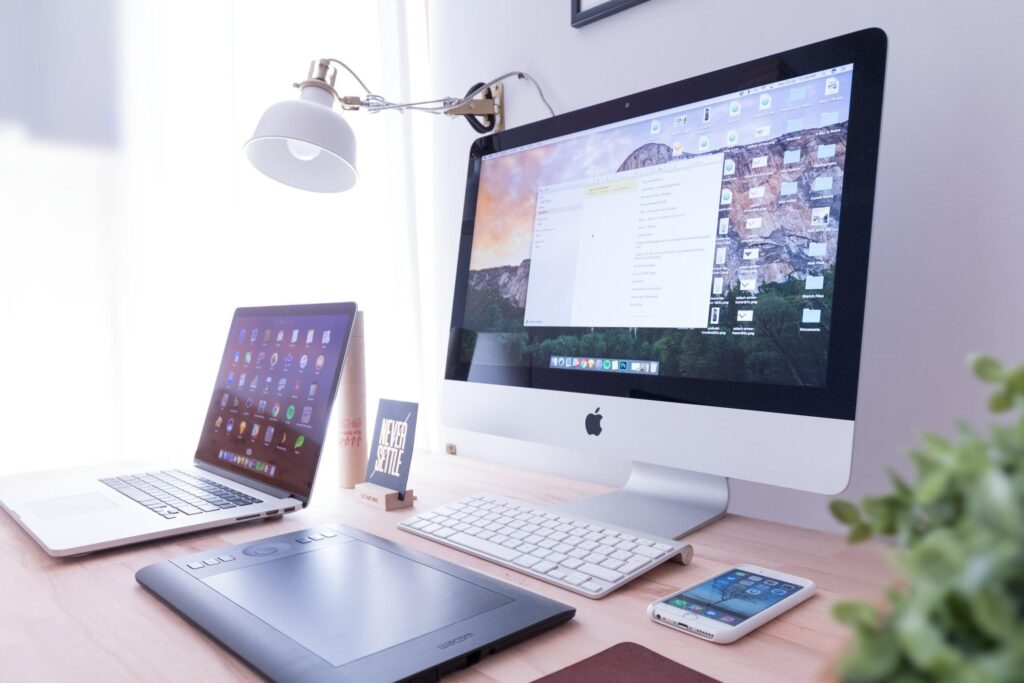Macbooks might not be as prone to cybersecurity threats as other computers. Regardless, it does not mean that your system is not at risk. Failing to take the necessary precautions can lead to sensitive information exposure. In addition, even an insignificant virus can be detrimental to the overall performance of your Macbook.
If you have been neglecting your Mac’s security for a while, now is a good time to make some changes. Create a cybersecurity strategy using the tips below.
Idea #1 – Remove Corrupted Files
Reliable antivirus software is one of the cornerstones of a solid cybersecurity strategy. You do not want to have a Macbook that is full of corrupted files. As far as cleanup instructions go, the answer is straightforward – as soon as antivirus finds corrupted files, get rid of them.
You may not have a budget to spend money on an anti-malware tool, but that should not be an issue. After all, there is great software available for free. Just be sure to research reviews or ask for recommendations from tech-savvy people if you know any.
Idea #2 – Use Difficult Passwords

Avoid using simple passwords, such as “123456” or “password, “ and try to come up with something more complicated. If you are having problems, use password generators online.
It may be difficult to memorize a unique password at first, but it also means that the password will be hard to crack. Write it on a piece of paper or store the password on your smartphone so that you do not lose it.
Another thing to note is how important it is to never use the same password for multiple accounts. If someone gets hold of your password, it means that you expose all of your profiles – social media, forums, and every other account that you access with the same password.
Idea #3 – Get Rid of the Automatic-Login Feature
Disable the automatic-login feature. Even if you have to enter your password every time after booting the computer, there is no need to worry about it too much, especially when it improves the security of your Macbook.
In case someone swipes the computer, they will have a much easier time accessing your data because there is no need to enter a password. On the other hand, if your Mac is at home all the time, it is fine to keep the auto-login feature enabled.
Idea #4 – Keep the System up to Date

Lack of system updates can harm the Macbook. New OS versions introduce more than just features and performance improvements. Sometimes, the developers need to hurry up and release a patch that fixes potential cybersecurity problems.
People who create malware are one step ahead and make anti-malware developers react. In some cases, even great antivirus might not protect you. Keep an eye on system updates and install them as soon as they are available.
Idea #5 – Optimize Internet Browser
The internet is crawling with malware-infested landing pages. Clicking on a random banner or a pop-up might redirect you to such a landing page. And even if you are aware of the danger, it does not mean that another person who might use your computer is.
The best solution would be to install an ad blocker. The most popular browsers have adblock extensions that prevent those annoying pop-ups and give you peace of mind knowing that you are unlikely to end up on a malware-infested landing page.
Idea #6 – Avoid Questionable URLs
Continuing with dangerous landing pages, another way to end up on one is via links someone sends you. Be cautious, even if this is a person you know and trust. It would be better to ignore a URL if it seems suspicious.
Also, you should be cautious while looking for files online. Downloading from illegal sites and pirating come with risk.
Idea #7 – Browse via Virtual Private Networks

Virtual private networks are a good option if you are concerned about your privacy in addition to safety on the internet. A VPN hides your true location by changing the IP address.
Moreover, if you connect to public Wi-Fi hotspots from time to time, using a virtual private network should be one of your priorities. The internet at hotels, libraries, and cafes are perfect for hackers to set up a trap and attack unsuspecting people.
VPNs are relatively cheap. Paying a few dollars every month to improve your online privacy and security is worth it, especially now, when there are so many potential threats on the world wide web.
Idea #8 – Create a Non-Admin Profile
A non-admin profile is a good way to further protect your Macbook from potential dangers. Suppose you leave your most important files on an admin profile and do your daily activities on a separate profile. In that case, it should reduce the odds of exposing sensitive information and give a bigger security boost.
About Author: Nitin Maheta is an online blogger interested in the latest Technology. He writes about the latest tech news and how-to articles on his blog TechieMates.
